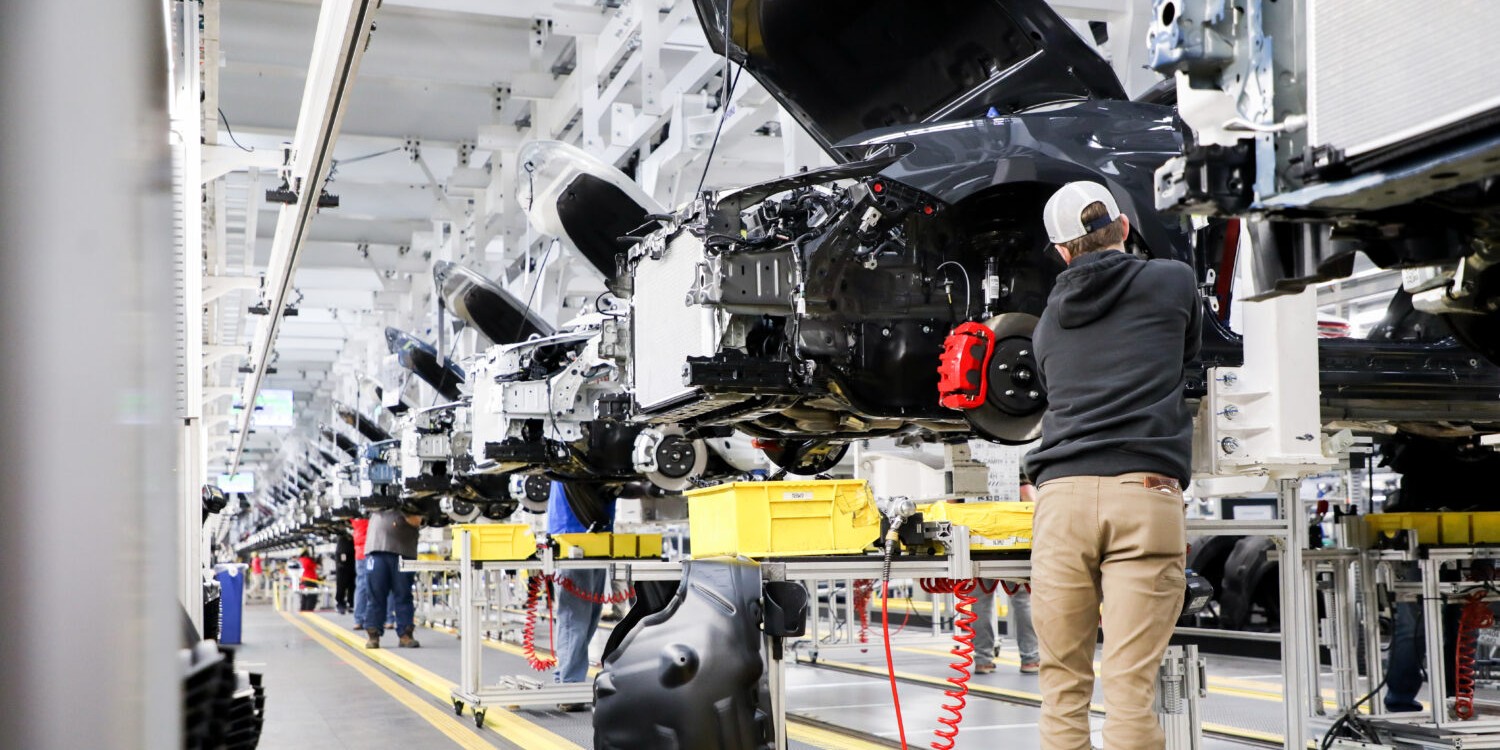
Toyota just announced a $1.3 billion investment in its Kentucky factory to build EVs, including its three-row electric SUV for the US market.
The investment supports the previously announced future battery EV assembly at Toyota Kentucky. It’s also adding a battery pack assembly line, with batteries being supplied by Toyota Battery Manufacturing North Carolina.
Kerry Creech, the president of Toyota Kentucky, said, “Today’s announcement reflects our commitment to vehicle electrification and further reinvesting in our US operations.”
In October 2023, Toyota announced it would invest an additional $8 billion in its North Carolina EV battery plant, which it first announced in December 2021, to make batteries for its EVs and PHEVs. It’s expected to be ready next year.
Electrek’s Take
Toyota’s EV investment announcement is good news, and fingers crossed, signals another serious shift from the foot-dragging company toward REAL EVs.
Despite putting big money into electrification efforts, Toyota has a history of fudging what electrification means, pushing its hybrids as EVs in marketing campaigns, and talking about hydrogen.
It says it has 26 “electrified” models, but it only sells two battery-electric vehicles, the bZ4X SUV and the Lexus RZ. The other 24 are hybrid models, so that’s a fudge.
That’s part of its “electrified diversified” campaign, which, as my colleague Jameson Dow wrote in November 2023, “is Toyota’s attempt to push vehicles that are entirely powered by fossil fuels as if they are an important part of an automaker’s strategy toward carbon neutrality.”
Dow explains:
Hybrid vehicles like the (non-plug-in) Prius run entirely on gasoline. There is zero energy that enters the car system that is not put there by limited and polluting fossil fuels, of the kind that contributes to millions of deaths globally per year. You cannot power a Prius on carbon-neutral energy, and a Prius is not zero-emission.
Toyota’s strategy, which reflects its conservative corporate culture, has been wrongly steered by its belief that the market and EV technology still need to mature to meet its reliability and efficiency standards.
So, while it’s been slow to pivot toward EVs, and its greenwashing campaigns are unfair to consumers, Toyota’s announcement today sees it putting its money where its mouth… isn’t.
This shift hopefully indicates that the Japanese automaker is shifting away from its hesitance in recognizing the growing importance of BEVs in the US market. Because if it doesn’t, its home country could suffer for it.
If you live in an area that has frequent natural disaster events, and are interested in making your home more resilient to power outages, consider going solar and adding a battery storage system. To make sure you find a trusted, reliable solar installer near you that offers competitive pricing, check out EnergySage, a free service that makes it easy for you to go solar. They have hundreds of pre-vetted solar installers competing for your business, ensuring you get high quality solutions and save 20-30% compared to going it alone. Plus, it’s free to use and you won’t get sales calls until you select an installer and share your phone number with them.
Your personalized solar quotes are easy to compare online and you’ll get access to unbiased Energy Advisers to help you every step of the way. Get started here. –ad*
FTC: We use income earning auto affiliate links. More.